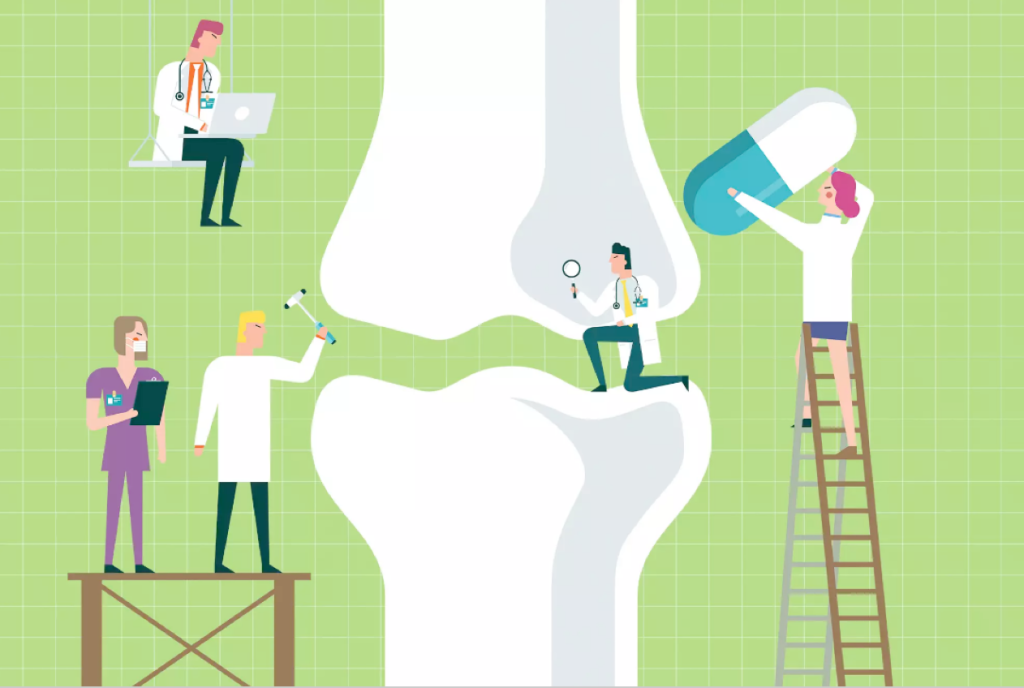
1: Move Your Body!
As a physiotherapist, we know we do not stop talking about the importance of moving your body regularly and exercising. However, there is more to this than just a nagging physiotherapist.
Did you know that living an active lifestyle does wonders for your bone health? The answer is YES! In fact, your bones do get stronger when you use them. The bones in your body are living tissue, just like your muscles. The best exercises for your bones are both weight-bearing and strengthening.
2: Eat Well
Unsurprisingly, there is a strong correlation between healthy eating and bone health. There are many vitamins, nutrients and minerals that benefit your bones; calcium and vitamin D being the most important ones. You needn’t worry, these vitamins, nutrients and minerals should be plentiful in a well-balanced diet already! Whilst there are no foods that are ‘bad’ for your bones, there are some that should be enjoyed in moderation; such as caffeine and fizzy drinks.
3: Smoking and Alcohol
Did you know that smoking slows down the cells that build bone? This is really important to your bone health as it could increase the risk of even breaking a bone. Ever more, these cells continue to renew your bone as you get older but when you break a bone, they are vitally important in also healing that break. Smoking also increases your risk of early menopause. This may not seem like much but post-menopausal your risk of osteoporosis increases.
Interestingly, because your bones are made of living tissue, your risk of breaking a bone will return to normal after you stop smoking. Excessive alcohol consumption has the same effects as smoking does by slowing down the cells that build/rebuild your bone therefore reducing your bone health.
4: Health-related Risk Factors
There are some medications and health conditions that can affect your bone health.
Risk factors you can change: low body weight, smoking, alcohol consumption, slips, trips and falls.
Risk factors you can’t change: Your genes, being a woman, ageing.
Medications related to bone health: Steroids (if taken longer than 3 months), anti-epileptics, breast and prostate cancer treatments.
Health conditions increasing the risk: Rheumatoid Arthritis, low-levels of Oestrogen in women, low-levels of testosterone in men, hyperthyroidism, coeliac disease, chrohns.
5: Vitamin D
Vitamin D and calcium often go hand in hand as Vitamin D helps your body absorb and use calcium. Calcium itself makes your bones strong and hard, as well as helping your muscles stay strong too. Vitamin D can be found in a balanced diet, sunlight and Vitamin D supplements, if necessary. Most people should consider taking supplements to support a balanced diet between September and April.
Final Thought
Do not panic if you have to take certain medications or have a health condition that may increase your risk of reduced bone health. It doesn’t mean there aren’t things you can do as we discussed above.
As always please check with GP if there are any questions regarding to your health condition, medication or if you’re worried about your bone health.
If you would like guidance regarding an appropriate exercise programme for you then get in touch either by calling 01276 37670 or you can book online through clicking the button below
Thank you for reading.

Jessica Reed (BSc, SRP, MCSP, AACP)
Specialist MSK Physiotherapist
